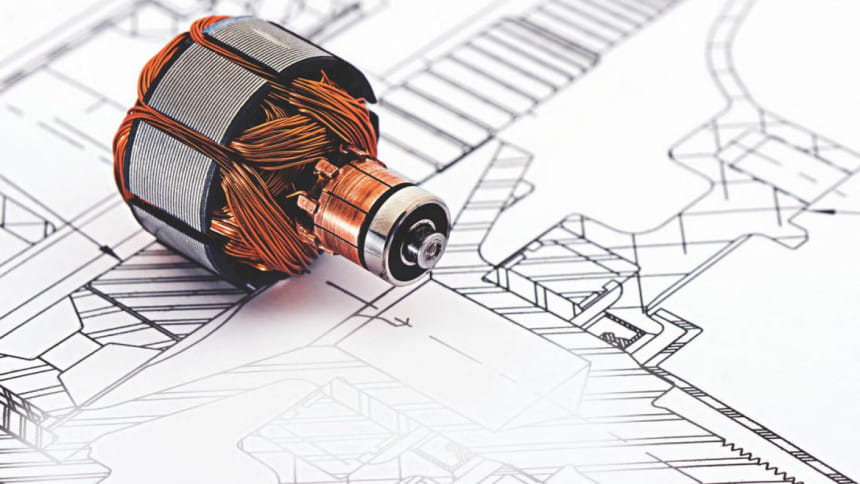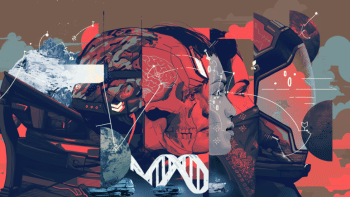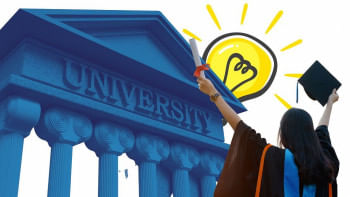How should our engineering education evolve?

While Bangladesh has made significant strides in various sectors, the domain of engineering education lags behind. As a student of engineering, then a professor and then a vice-chancellor of a private university, I have witnessed the changes within the academic landscape of engineering in Bangladesh for over four decades. Over the years, engineering programmes in Bangladeshi universities have stagnated, still clinging to a 20th-century structure instead of evolving to keep up with the Fourth Industrial Revolution (4IR). Some necessary steps have to be taken to rectify that.
Bangladesh is adapting to 4IR, marked by the convergence of various exponential technologies like artificial intelligence (AI), cloud computing, 3D printing, Internet of Things (IoTs), biotechnology, genomics, and nanomaterials. Integration of cyber-physical systems automates manufacturing and develops many innovative engineering systems. Concerns about AI's competition with human intelligence and the uncertain future of jobs are widespread. The complexity of technologies and the diverse array of societal needs necessitate a renewed approach to engineering education.
So far, the engineering curricula are being updated by adding a few new courses. In light of the current context, some educators propose incorporating courses like machine learning, biotechnology, and data analytics into the curriculum of every engineering programme to address the challenges of the present era. Their argument is based on the idea that complex systems can be inferred from "objective" empirical data and understood by analysing the behaviour of their constituent parts. This underlies our current undergraduate engineering curricula, following a Cartesian/Newtonian perspective marked by dualism, reductionism, and determinism.
The characteristics of present complex systems include: i) holism—the system's characteristics can only be explained in terms of the whole, not its components; ii) chaos—there can be multiple possible outputs for a given input, or small changes in input can result in significant changes in output; and iii) subjectivity—some aspects of the system might not be able to be described objectively.
A "holistic undergraduate curriculum" can embrace complexity, ambiguity, and uncertainty inherent in technologies. Students need to transition from problem-solving to problem formulation and learn to navigate ambiguity. Essential skills include creativity, open-ended problem-solving, innovation, collaboration, communication, ethics, entrepreneurship, lifelong learning, emotional intelligence, and systems thinking. Introducing capstone projects, especially interdisciplinary ones, can foster critical thinking and problem-solving skills. Many universities abroad have learning laboratories to provide an experiential, collaborative environment to prepare students for their professional journey. Traditional teaching methods are being replaced by alternatives like project-based learning, problem-based learning, flipped classrooms, and experiential learning, acknowledging the inadequacy of the traditional "chalk and duster" approach.
Universities in Bangladesh are teaching 21st century students with 20th century curricula in 19th century classrooms. Transforming engineers for the present and future requires a departure from reductive curriculum and traditional teaching approaches. The time is ripe for a paradigm shift in engineering education, one that embraces transformational change to adequately prepare students for the challenges and opportunities of the contemporary technological landscape.
Developing holistic curricula and innovative teaching and learning is a challenge. The education authorities could consider establishing the Bangladesh Academy of Engineering, dedicated to overseeing this discipline and fostering the development of innovative engineering education for both present and future. This initiative is not unprecedented; for example, the United States has already established the National Academy of Engineering, and Australia has named its counterpart the Australian Academy of Technology and Engineering.
In our globally connected landscape, engineers need to stand out internationally. To thrive in this competitive arena, I also advocate for the creation of a master's degree in professional engineering (MPE) modelled after an MBA. The MPE curriculum should be meticulously crafted to cultivate cognitive skills, robust management expertise, and essential soft skills, ensuring that our post-graduate engineers stand out on the global stage.
MM Shahidul Hassan is former vice-chancellor of East West University and former professor of Bangladesh University of Engineering and Technology. He can be reached at [email protected]
Views expressed in this article are the author's own.
Follow The Daily Star Opinion on Facebook for the latest opinions, commentaries and analyses by experts and professionals. To contribute your article or letter to The Daily Star Opinion, see our guidelines for submission.

 For all latest news, follow The Daily Star's Google News channel.
For all latest news, follow The Daily Star's Google News channel. 










Comments